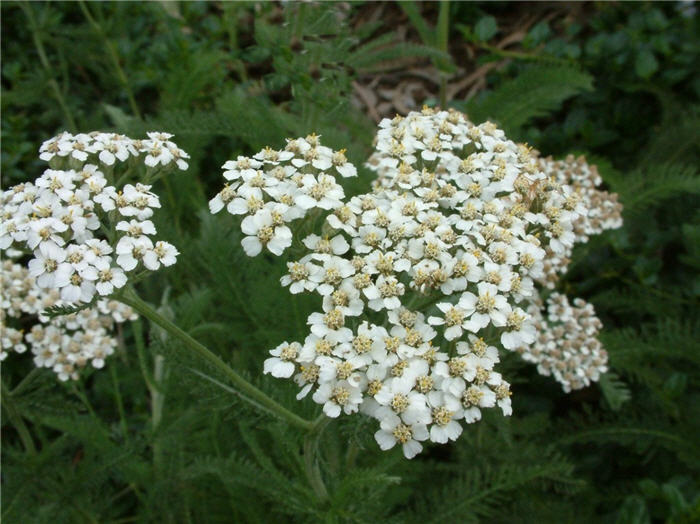| Botanical Name: Achillea millefolium | |
| Common Name: Common Yarrow |

-
Anatomy
-
Culture
-
Design
Plant Type
Ground cover, Perennial
Height Range
1-3'
Flower Color
White
Flower Season
Summer
Leaf Color
Green
Bark Color
n/a
Fruit Color
n/a
Fruit Season
n/a
Sun
Full, Half
Water
Very Low
Growth Rate
Fast, Moderate
Soil Type
Sandy, Clay, Loam, Rocky, Unparticular
Soil Condition
Average, Poor, Well-drained, Dry
Soil pH
Neutral
Adverse Factors
Attracts Bees
Design Styles
English Cottage, Meadow, Mediterranean, Ranch, Seascape, Spanish, Native Garden
Accenting Features
Showy Flowers, Unusual Foliage
Seasonal Interest
Summer
Location Uses
Perennial Border, Foundation, Parking Strip, Walkways, With Rocks
Special Uses
Container, Cut Flowers, Filler, Mass Planting, Lawn Alternative, Fire Resistant, Naturalizing
Attracts Wildlife
Butterflies
Information by: Stephanie Duer
Photographer: Steve Mullany
Photographer: Steve Mullany
-
Description
-
Notes
Common Yarrow is a hardy perennial with ferny, bright green foliage. It has a tight cluster of white flowers and typically blooms in the summer months. It attracts bees and butterflies. It prefers full sun and becomes drought tolerant once it's established. Following bloom, dead head spent flowers to keep it looking tidy. Once established, it can spread rapidly and overwhelm less vigorous and smaller perennials; this can be an asset if planned for accordingly.
Many different cultivars of Yarrow are available, with different flower colors, including yellows, reds, peaches, and pinks. Yarrow makes a good ground cover when mowed, and tolerates a fair amount of foot traffic. Divide in the spring every few years as the centers can sometimes melt out. Grow in full sun to part shade in well drained soils. Tolerates clay soils. Yarrows are best not planted next to slower-growing and smaller perennials, as they may overtake and overwhelm them.